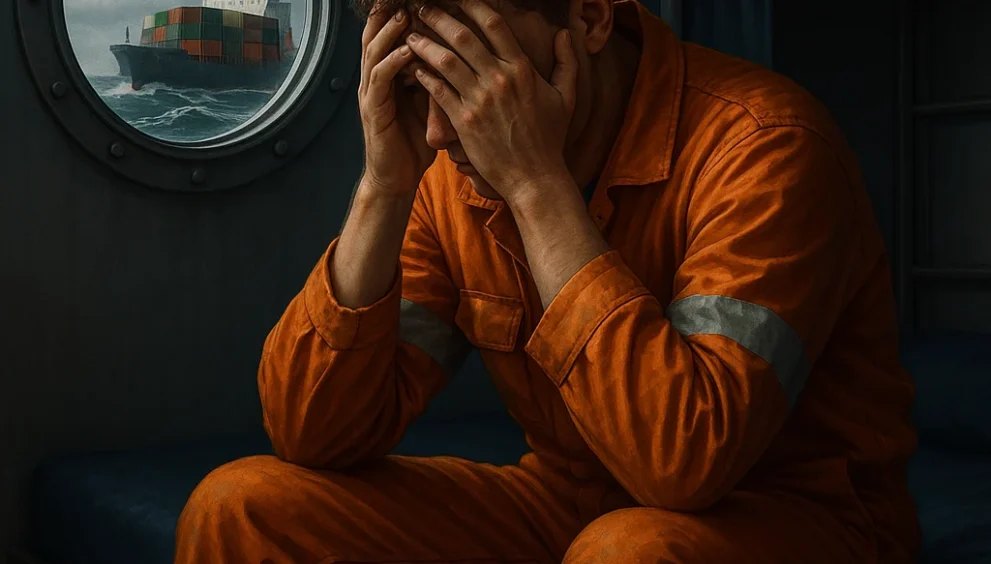Picture yourself on a massive merchant ship, surrounded by nothing but endless ocean. The waves crash, the engines hum, and you’re miles away from home—sometimes for months on end. It sounds like an adventure, right? For the crew members who keep global trade moving, it’s their everyday life. But behind the scenes, life at sea can be tough, not just on the body but on the mind. The long hours, the isolation, and the pressure of keeping everything running smoothly can weigh heavily, and too often, those struggles stay hidden.
Think about a young sailor, maybe a deck cadet, excited to be out at sea. He’s all smiles during meals, cracking jokes with the crew, and seems to handle the long shifts just fine. But when the ship is quiet at night, and he’s alone with his thoughts, things aren’t so bright. He misses his family. He’s worried about messing up a critical task. The constant rocking of the ship makes it hard to sleep, and the spotty internet means he can’t even call home for a quick chat. Little by little, those feelings pile up, and one day, it’s too much. A tragedy happens, leaving everyone on board stunned and a family back home heartbroken.
This kind of story isn’t rare. Experts say about one in five seafarers deals with depression or anxiety while out at sea. The job is gruelling—12-hour shifts, months away from home, and the constant need to stay sharp because one mistake could spell disaster for the whole ship. Then there’s the culture on board: it’s tight-knit, but it’s also tough. People don’t always feel like they can speak up about feeling low or stressed. Showing weakness seems like letting the team down, so they bottle it up. Things like pulling away from group chats, snapping over small stuff, or not eating much can be warning signs, but they’re easy to miss until it’s too late.
So, what can be done? It starts with talking. Captains and officers can make a big difference just by checking in—not just about work, but about how people are doing. Some ships now include mental health training alongside safety drills, teaching crews how to spot when someone’s struggling and how to help without making it a big deal. There are also tools like the Seafarers’ Happiness Index, where sailors can share how they’re feeling anonymously, or apps that let them talk to counsellors even with shaky internet.
Shipping companies are starting to step up too, with things like mental health check-ups before a voyage or 24/7 helplines. Even bigger groups, like the International Maritime Organization, are pushing for rules to treat mental health as seriously as physical safety, including better schedules to avoid burnout. But the real change comes from shifting how we think—mental health isn’t a personal flaw; it’s part of the job, and it’s something we all need to watch out for together.
At the end of the day, a ship’s crew is like a family. They share coffee on deck, swap stories about ports they’ve visited, and lean on each other to get through the long hauls. Those moments of connection are where hope lies. By talking openly and looking out for one another, seafarers can turn the tide on mental health struggles. The sea is tough, but so are the people who sail it—and with the right support, they can keep each other strong.


